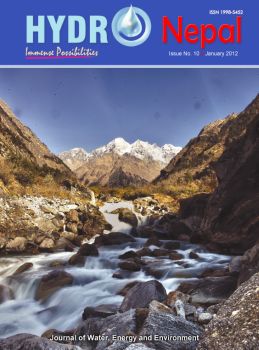Water and Hydropower in the Green Economy and Sustainable Development of the Hindu Kush-Himalayan Region
DOI:
https://doi.org/10.3126/hn.v10i0.7097Keywords:
Hydropower, green economy, sustainable development, payment for environmental services, carbon finance, Hindu Kush-Himalayan (HKH) regionAbstract
Water storage projects in the Himalayan region are thought of primarily in the context of hydropower generation, which can be perceived as an opportunity driven approach. However, water scarcity is a major problem in the basins of the ten rivers originating in the region, especially in the dry season. This is due to high intra-annual rainfall variability, which may get worse due to population growth and climate change and variability. Water storage projects may, therefore, have to be thought of in the context of water scarcity, which can be perceived as a challenge driven approach for water storage capacity development. This paper suggests that to increase the pace of development of constructed storage systems such as large multi-purpose projects that provide water availability as well as hydroelectric power benefits, institutional mechanisms may have to be crafted for benefit-sharing between upstream and downstream communities affected by storage projects. Until that time, it may be necessary to increase the pace of hydropower development in the region through small- and medium-size hydropower projects. This paper discusses the economic, environmental, technological, financial, and institutional barriers to the development of small hydroelectric power plants in the region. It also discusses the role of the Payment for Ecosystem Services (PES) and raising carbon finance under the Clean Development Mechanism (CDM) as potential solutions to partially overcome environmental and financial barriers respectively.
DOI: http://dx.doi.org/10.3126/hn.v10i0.7097
Hydro Nepal Vol.10 January 2012 11-19
Downloads
Downloads
Published
How to Cite
Issue
Section
License
The copyright of the articles and papers published is held by HYDRO Nepal Journal.
The views and interpretation in this journal are those of author(s), and HYDRO Nepal does not bear any responsibility for the views expressed by authors in the journal.




